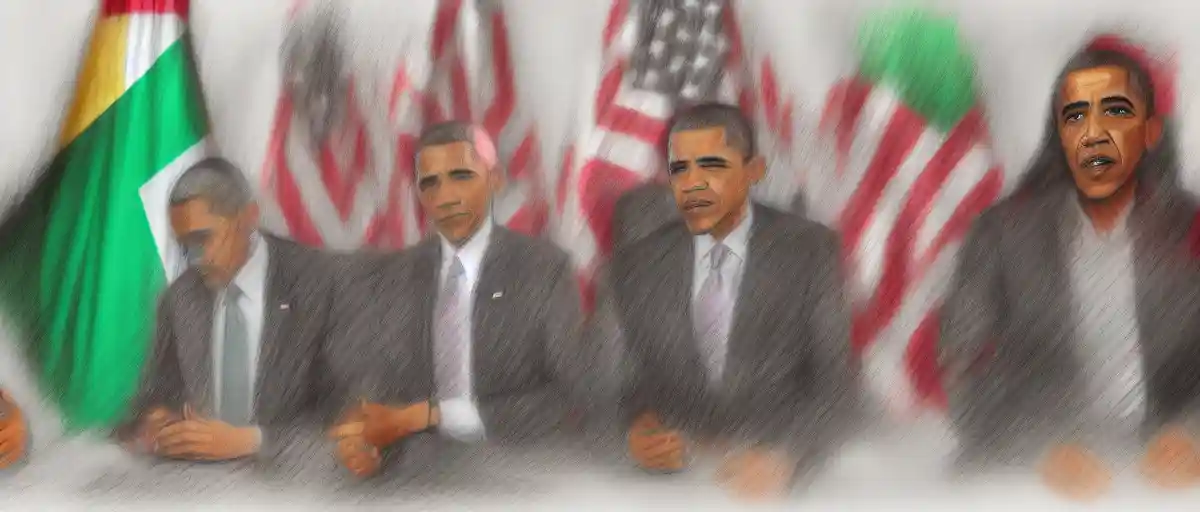This Might Catch Your Attention Too:
Backfiring Obama-era Agreement: Increased Funding for Hamas?
The Obama administration’s decision to strike a deal with Qatar, allowing Hamas to establish an office in Doha, was a move that had far-reaching consequences. Initially, proponents argue that the agreement aimed to foster diplomatic engagement and potentially promote peace in the region. By way of contrast, critics contend that it had unintended repercussions, resulting in increased funding and political support for Hamas.
Supporters of the deal believe that providing Hamas with a platform in Doha could have been an opportunity for dialogue and eventual reconciliation. They argue that engagement, rather than isolation, is the key to resolving conflicts. By allowing Hamas to establish an office, the Obama administration sought to encourage direct communication, understanding that isolating them completely would only perpetuate tensions.
However, opponents of the agreement argue that it backfired spectacularly. By granting Hamas a presence in Qatar, a state known for its financial resources, they were inadvertently empowering the group. Experts claim that the office in Doha allowed Hamas to solicit funds and expand its political influence, raising concerns about the unintended consequences of the deal. This increased support, they argue, only entrenches Hamas further, making peace negotiations even more difficult.
The argument against the deal also points to the potential risks it poses to regional stability. Critics contend that giving a legitimate platform to an organization labeled as a terrorist group by many nations undermines efforts to combat extremism and promote a peaceful resolution to the Israeli-Palestinian conflict. They argue that Hamas’s actions, such as the indiscriminate rocket attacks on Israeli civilians, should have disqualified them from such privileges.
The reality is that international agreements often have complex and unforeseen implications. While the intention behind the Obama administration’s deal with Qatar may have been noble, the unintended consequences cannot be ignored. The presence of Hamas in Doha allowed the group to leverage their newfound legitimacy for financial and political gain. This ultimately hindered the prospects for lasting peace in the region.
Moving forward, it is crucial for governments to carefully consider the long-term effects of such agreements. Balancing the need for engagement and dialogue with the risk of empowering extremist groups is a delicate task. Diplomatic initiatives must prioritize accountability and ensure that any benefits derived from such deals do not outweigh the potential harm they may cause.
In the case of the Obama-era agreement with Qatar, it is clear that the unintended consequences of granting Hamas a legitimate platform have hampered efforts towards a peaceful resolution. As the world grapples with ongoing conflicts, it is our responsibility to learn from these past mistakes and make more informed decisions that prioritize stability and justice in the pursuit of lasting peace.
Here's A Video We Thought You Might Also Like:
Author Profile

- Hi, I'm Harper Morgan, and I'm thrilled to be sharing the news with you. I started my career as a multimedia journalist, exploring the power of storytelling through videos. Now, as a rising star in online news, I bring that same energy and enthusiasm to every report. Connecting with people from all walks of life is my superpower. Together, we'll dive into important stories and make a difference. Thank you for joining me on this exciting adventure!
Latest entries
 Breaking News2023.12.19Miraculous Hit-and-Run Incident Claims the Life of a Florida Mailman!
Breaking News2023.12.19Miraculous Hit-and-Run Incident Claims the Life of a Florida Mailman! Breaking News2023.12.19Unimaginable New Breakthrough in Long-Standing Serial Killer Case!
Breaking News2023.12.19Unimaginable New Breakthrough in Long-Standing Serial Killer Case! Breaking News2023.12.19Miraculous video reveals rabbi’s controversial call to arms for Jewish community
Breaking News2023.12.19Miraculous video reveals rabbi’s controversial call to arms for Jewish community Breaking News2023.12.18Captivating Escape Texas Inmate serving life sentence for child sexual abuse on the run!
Breaking News2023.12.18Captivating Escape Texas Inmate serving life sentence for child sexual abuse on the run!






